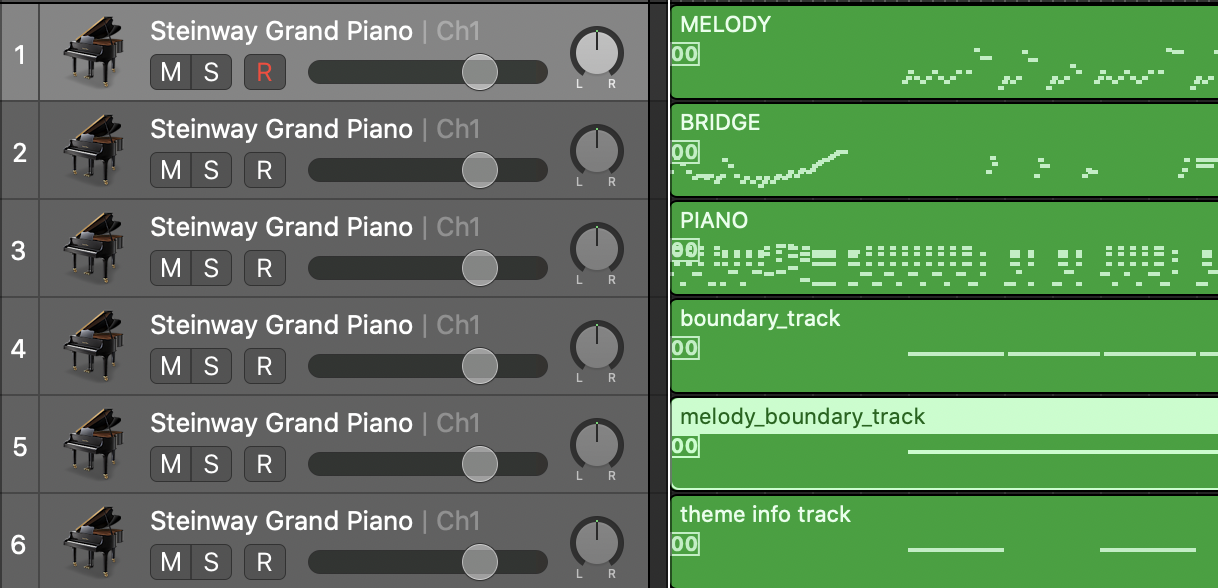New issue
Have a question about this project? Sign up for a free GitHub account to open an issue and contact its maintainers and the community.
By clicking “Sign up for GitHub”, you agree to our terms of service and privacy statement. We’ll occasionally send you account related emails.
Already on GitHub? Sign in to your account
How to generate training pkls and theme files from POP909 #1
Comments
|
Dear @2000222 So sorry for the late reply... Thanks for trying out Theme Transformer! I have to apologize for the absence of the Theme retrieval code. For Theme midi fileAlthough the theme retrieval code is not available in this repo, you can still create your own Theme MIDI files by following the following format (which is seen in (which contains 3 tracks: naming “MELODY”, “PIANO” and “Theme info track”) For example, the following is the screenshot of As for the length of the theme (number of bars), we use the length of 2 bars in our work, but the model should work without error with longer themes. However, we do not guarantee the quality of the themes beyond POP909 dataset or themes longer than 2 bars, as our model is trained on 2-bar segment themes in POP909. You can inference music by our model with your custom theme MIDI files. For .pkl filesThe pkl files contain REMI sequences for training and testing of our model. They are attained by gathering a bunch of remi sequences from annotated individual midi files. For midi annotations: others:
After the annotations are done, please call the following 2 functions
Example: remi_seq = myvocab.midi2REMI(midifp,include_bridge=False,bar_first=False,verbose=False)
ret = myvocab.preprocessREMI(remi_seq,always_include=True,max_seq_len=512,verbose=True)Finally, you can collect all Again, Thanks a lot for using Theme Transformer~ |
|
Thanks a lot for your tutorial. 💛 Exactly, I've created a manual theme_file with three tracks inspired by my favorite singer and applied the ThemeTransformer to generate new music. |





Hello, your work is so brilliant and I've completed the inference process for some provided theme files (e.g., 875_theme.mid).
But I feel a little confused how to generate the similar theme file from POP909 and how to obtain the training pkl files (train_seg2_512.pkl & val_seg2_512.pkl) from scratch.
If possible, could you pls share some related ideas or scripts? Thank you~~
The text was updated successfully, but these errors were encountered: